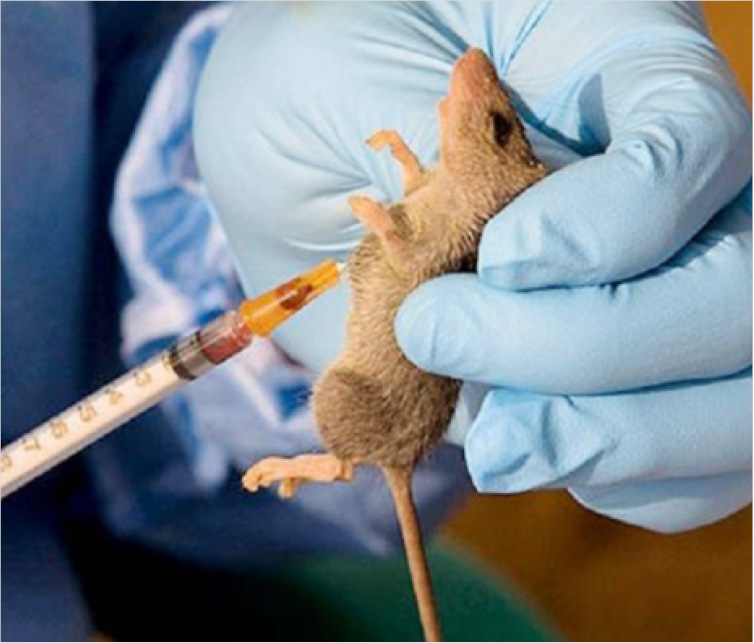Time to tackle meningitis, Lassa fever
Once again, the nation is faced with another round of cerebrospinal meningitis (CSM) problem which has so far led to the death of over a hundred people across the country. According to the latest situation report by the Nigeria Centre for Disease Control and Prevention (NCDC), a total of 1,304 suspected cases of the disease […]

Lassa fever
Once again, the nation is faced with another round of cerebrospinal meningitis (CSM) problem which has so far led to the death of over a hundred people across the country.
According to the latest situation report by the Nigeria Centre for Disease Control and Prevention (NCDC), a total of 1,304 suspected cases of the disease were recorded between January and February this year, leading to 112 deaths in 22 states.
The report, which was released on March 3, revealed that 93 per cent of the cases were from seven states – Yobe (635 cases), Jigawa (301 cases), Bauchi (176 cases), Gombe (58 cases), Katsina (50 cases), Oyo (23 cases), Kebbi (13 cases) and Adamawa (10 cases).
The centre said a new strain of the disease was recorded this year. Dr Olajide Idris, Director-General of the NCDC, said the National Agency for Food and Drug Administration and Control (NAFDAC) was making efforts to ensure vaccines for the new C-strain of meningitis were as readily available as those for the A-strain.
School feeding programme to cover basic education –FG
Meningitis is an infection of the brain and spinal cord-surrounding membranes known as the meninges.
The NCDC also reported rising cases of Lassa Fever, measles, diphtheria and cholera since the beginning of this year.
According to the centre, between January and March this year, there were reported outbreaks of Lassa fever in 24 states, with 3,213 suspected cases, 583 of which are confirmed, and 108 deaths.
Diphtheria outbreaks occurred in 12 states, with 3,587 suspected cases, of which 1,915 are confirmed, and 33 recorded deaths.
Measles cases reached 2,157, with 1,442 confirmed cases and 14 deaths, while cholera outbreaks were reported in 15 states, with 318 suspected cases, 28 confirmed cases, and four deaths.
According to the director general, “The agency has deployed rapid response teams and resources to affected areas to deliver medical care, conduct contact tracing, and implement control measures to contain the spread of these diseases.”
It is indeed unfortunate that several decades after independence, Nigeria is still grappling with how to contain the outbreak of these diseases. This is despite the fact that we always know when they occur and how to remedy the situation.
About 40 years ago, even the children knew about CSM and other diseases’ vaccinations which were administered to citizens in homes, schools, markets and other public places. Weeks on, there would be massive enlightenment about the causes and preventive measures against such diseases. These would take place in schools, palaces of traditional leaders and special gatherings. Health and other workers were deployed to all nooks and crannies to administer vaccines, enlighten people and sanction defaulters.
But it seems, given the frequency of the incidents and the devastating effect they have on the population, our officials have discarded those old, but simple measures to contain the diseases. The relevant authorities are now giving little attention to the breakout of the diseases and measures to contain them.
The director general of the NCDC said his organisation had taken measures to alert the appropriate authorities on the outbreak and measures to be taken. “At the beginning of the season, all state governments and public health authorities were alerted to the heightened risk of a CSM outbreak and the need for resource mobilisation for preparedness and response activities. Routine meetings of the national multi-sectoral CSM TWG (were held) to coordinate prevention and preparedness activities. Regular communication (were held) with high-burden states to ascertain status, progress and challenges.”
We, at the Daily Trust, believe that there is so much negligence on the part of local and state authorities on these diseases, which is why when they strike, many people die. These are issues that are best tackled at local level and require minimal financing to address. It is sad that local and state authorities hardly give priority to funding basic health care delivery and we end up with emergency situations more often.
Daily Trust urges state and local government councils to ensure adequate funding to the health sector to tackle such outbreaks. We also believe that the most important measure is to ensure adequate enlightenment of the citizens about the causes and prevention of these diseases. They are simple and can easily be adhered to.
We, therefore, call on them to revamp their respective public enlightenment departments to carry out their duties effectively. If yearly outbreaks such as mentioned continue to cause havoc, what will happen if Nigeria is faced with something more deadly? The authorities need to get their act together and address this once and for all. It is time Nigeria moves forward to tackling more challenging issues.
